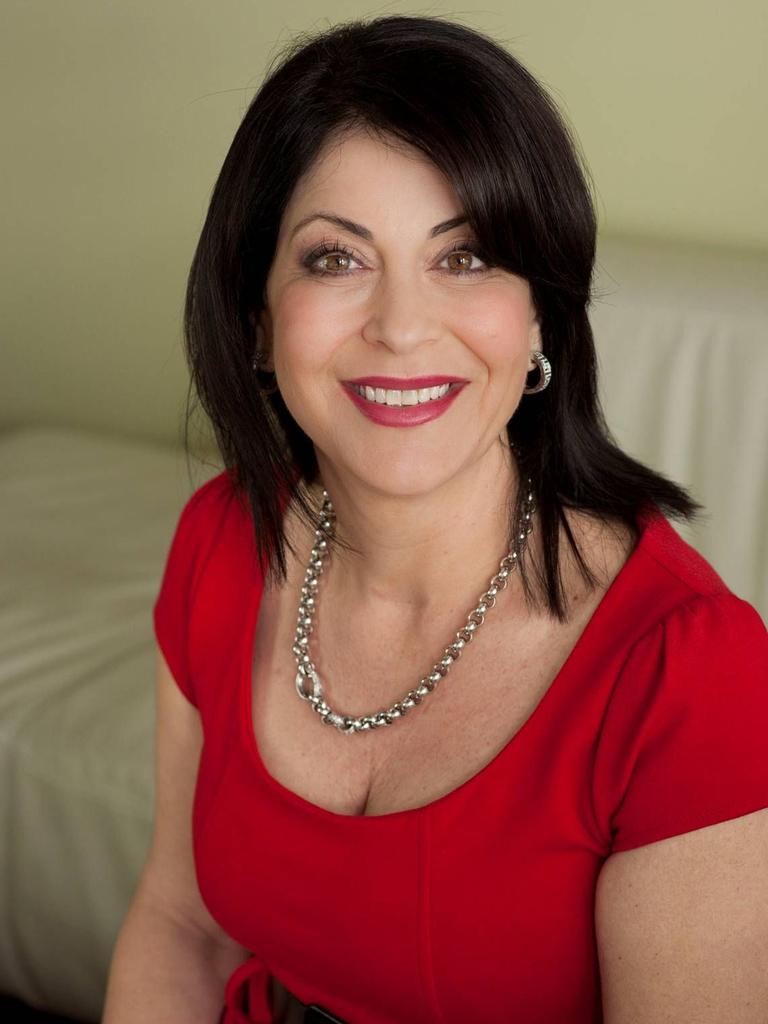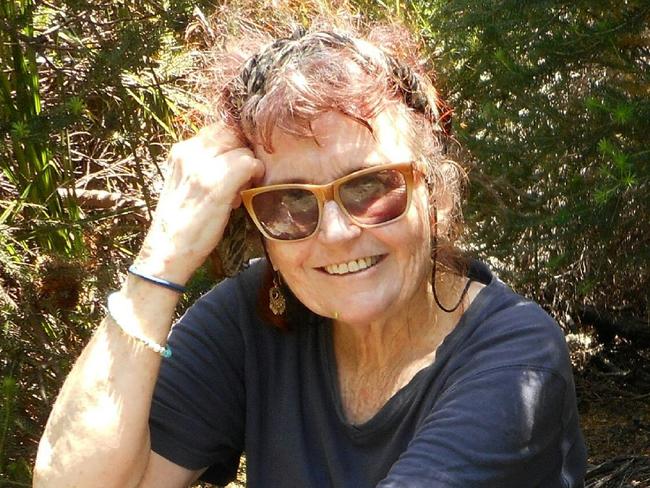Paris Debono’s clientele extends far and wide — bankers, housewives, businessmen, the unlucky in money and the lost in love.
He meets them, where he meets me, inside his office on Surry Hill’s bustling Crown St.
The shopfront is swathed in red curtains and proudly reads: The Fortune Teller.
“I’ve had the Fortune Teller brand for about 25 years now,” Debono tells me matter-of-factly.
People come in often because they want to hear good news, but you also need to give them the information you are getting
Until now, my only interaction with him has been a quick telephone conversation. But his distinctly baritone voice seemed a mismatch to the man dressed in a relaxed Adidas tracksuit, sitting behind a laptop and casually recounting the most hilarious encounters he’s had in his decades as a professional psychic.
“I grew up in a really Catholic family and tarot was considered evil. But when I was seven we had an Encyclopedia Britannica which had a section on tarot and a plate of tarot cards and I used to look at them and wonder what they meant.”
That is his first memory of dabbling in the world of predicting the future.

Debono is in some ways exactly who you would expect to find in this tiny shop filled with cards, a crystal ball and mystical paraphernalia.
In other ways — namely his quick wit and ability to not beat around the bush — he doesn’t match the image of psychic readers that dominate popular culture.
“What I do is divination, where I divine from material things. I just look at your birthday, your cards, your palm. I don’t need to read your aura,” he says.
His weapons of choice include tarot, astrology, palmistry and gypsy card psychic readings. When I ask him about my future, we conclude tarot is the best option to answer my nagging questions.
Cynics have long attributed a psychic’s prediction abilities to cleverly worded questions and vague responses. Armed with this knowledge I was expecting Debono to put personal questions to me and check for my response — a glimmer of tears or a nod of acknowledgment and you’re ready to go.
But his technique is different.


“When you sit down I give you the option of choosing two areas to start off with. I get you to write your name and date of birth and then I write a whole page about you. I don’t talk to you,” he says.
“I read out what I have written and ask if they have questions. Usually they have already been answered.”
In 2012, almost 50 per cent of Sydney’s Mind Body Spirit Festival crowd was interested in seeing a psychic for a reading. In 2016, it increased to 72 per cent of the total visitors.
Hair stylist Holly Newton, 25, has been to two psychics. The first was out of plain curiosity but she turned to a second after her mother’s heartbreaking cancer diagnosis.
“I was feeling lost and heartbroken.
“The cancer diagnosis kind of flipped my world upside down and inside out and I was being open-minded about everything,” she says.
Newton says the reading was exactly what she needed to hear.
“Not this psychic but the one before said to me, ‘In everything in life we have a choice. I’m telling you the outcome of the best choice to make. So these things may not happen because you’ve chosen wrong, but this is the best choice for you,’ ” she says.
“I walked away feeling like I’m OK and we are OK and it’s OK.”
Caterina Ligato has seen many people with stories like Newton’s in the comfortable confines of her office.
The bubbly clairvoyant from Burwood has set up her quarters inside a sterile-looking business complex. But her warmth and a quick spritz of homemade energy spray have seen many people open up about their troubles.
She claims she has predicted health problems which some of her clients say have come true.
Ligato is a psychic healer who works with aura readings. She’s also an exorcist and ghost whisperer. She argues that psychics today need to recognise their duty of care.
“All kinds of people come to me. I even have parents bringing young people to me who have emotional trauma,” she says.

“It’s not just about giving messages and readings. It’s about healing because people carry a lot of trauma within them.”
In her experience, the industry is in dire need of regulation.
“It’s a very unrestricted industry and a lot of people come into it just wanting to make money and they do their tarot shop weekend. It’s really dangerous because you have the lives of other people in your hands,” she says.
“Half of them are just housewives at home with tarot cards.”
Ligato says there has been a sharp increase in the number of people turning to psychic healers and she attributes the business boom to religion.
“Religion has let people down because when people are already feeling bad they don’t need to hear about being a sinner or being a bad person,” she says.
“They will turn to people like us who make them feel like they are special … people are turning to psychics and healers because we give them the love and compassion that priests can’t give them.”

Psychic and energy worker Fran Davidson agrees with Ligato and likens her profession to “problem solving”.
It’s something she’s had practice at in her previous job in marketing.
The softly spoken Davidson meets me at her home in Haberfield. It’s here she answers people’s most pressing questions about love, romance, career, conflict and more.
She does readings, healings, space clearings and connects people to the spirits of loved ones who have passed away.
“Often psychics are seen as providing information, but energy workers acknowledge that energy can be used to help people,” she says.
It’s easy to understand why people bare their emotions to Davidson; she answers my questions with a mix of reassurance, honesty and calm.
“(Some topics) can be difficult, but it doesn’t mean we avoid it,” she says.
“Some psychics will deliver counselling in ways that they shouldn’t. I would like to hope that most of us know the boundaries.”

Davidson is certainly aware of hers.
One client, Sarah Aylward, has been coming to her since 2007 after seeing psychologists for many years and Davidson doesn’t attempt to supplement the work of clinical practitioners — she aims to complement them.
“I was working with a psychologist, but I was getting really frustrated … with Fran we worked on it from an energetic point of view rather than details of what happened to me,” Aylward says.
She had gone through an extensive list of psychologists and psychiatrists to deal with childhood trauma.
For the 68-year-old, working on how she felt instead of what had happened to her was easier to deal with.
“(Davidson) didn’t get into the details of what happened but more how it’s affecting me … she facilitates you working on yourself,” Aylward says.
Davidson says it’s important for psychics to not only view themselves as a source of information but also an avenue for people to discuss.
“People come in often because they want to hear good news, but you also need to give them the information you are getting.

“So it’s not my job to think, ‘No, I won’t tell them that’. It’s my job to prepare them to receive it.
“There’s always an upswing. If a client walks out feeling sad about the reading, at least they know why.”
Debono has had extensive success with regular TV stints and business is booming. But he acknowledges that confusing psychics with health professionals is a grave mistake.
“I don’t do readings on health for the general public because I’m not a health professional and there are doctors for that,” he says. “It’s like asking me the best way to get to Palm Beach. Use a GPS — I’m not a GPS,” he laughs.
So where does the modern-day psychic fit in and why are people coming to him?
When I put this question to Debono he’s quick to give me a concise list: relationships, love and career. “You can measure health but there is no doctor that can tell you if your boyfriend loves you 95 per cent or 45 per cent; that’s where we come in,” he says.
“There is no scientific test that tells you to quit your job. We deal with humanity, with thoughts, feelings, fears, doubts. These are the things we can’t measure,” he says.
Debono finds that diving into the most complicated of human emotions for complete strangers can be a difficult task. The key he says, is to form a rapport but stick to being honest.
He adds: “In this job, people come to us when they are vulnerable a lot of the time.”

